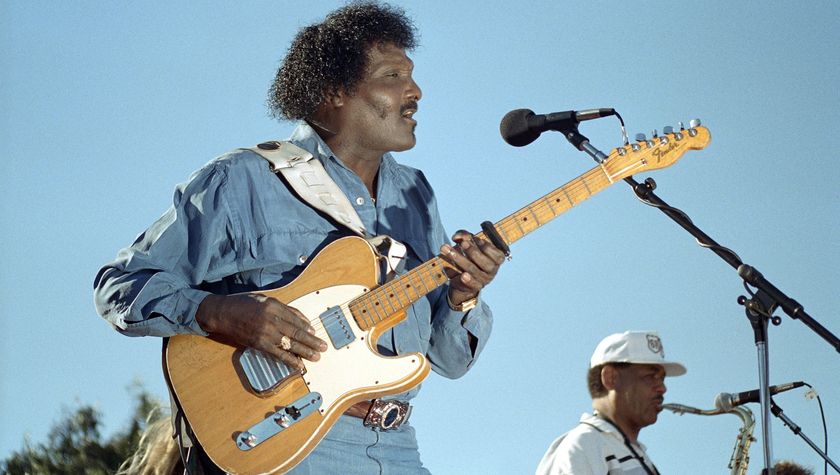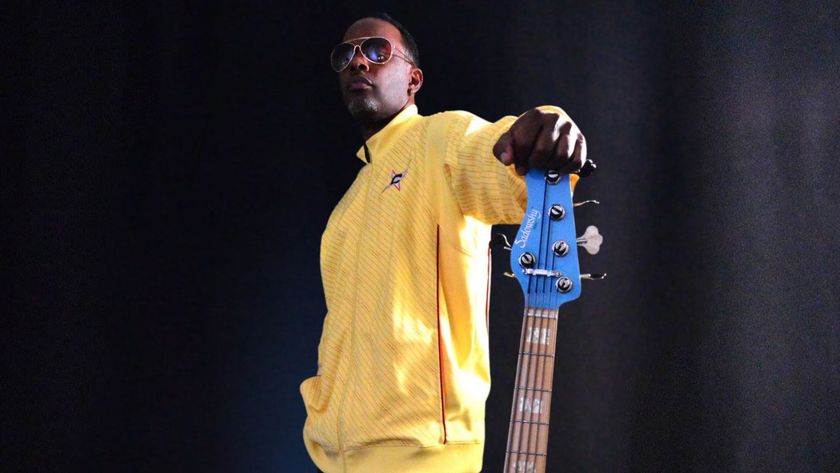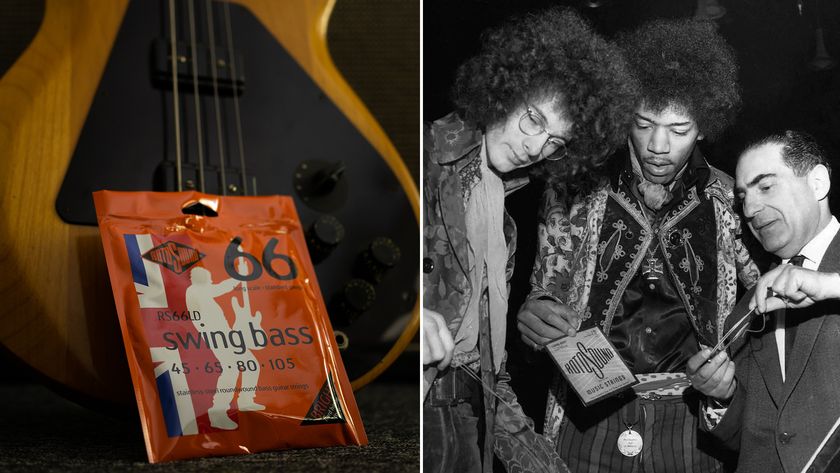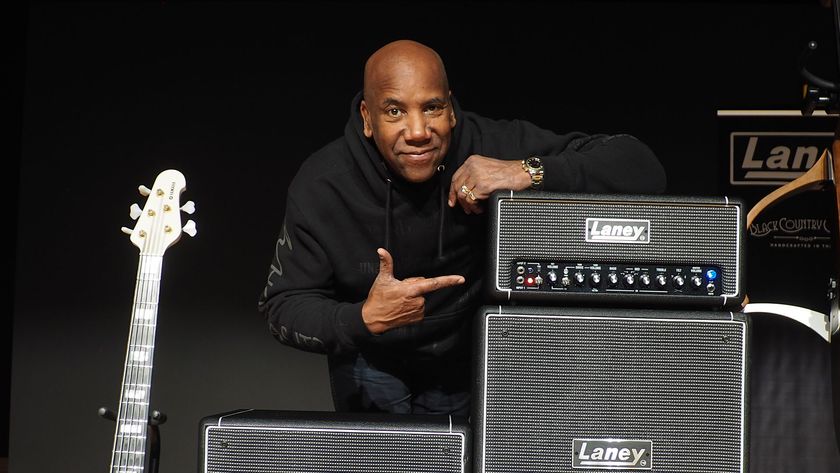“Whenever I think I have my tone dialed in, I find something that makes me want to improve. I doubt I’ll ever quit chasing the dragon”: Kill Devil Hill are back – Mark Zavon explains why Rex Brown’s departure lit a fire under the hard-rock supergroup
The Framus-toting riffer on his eternal quest for tone, why his solos lean more lyrical than shred, and how his band is moving forward without Rex Brown and Vinny Appice
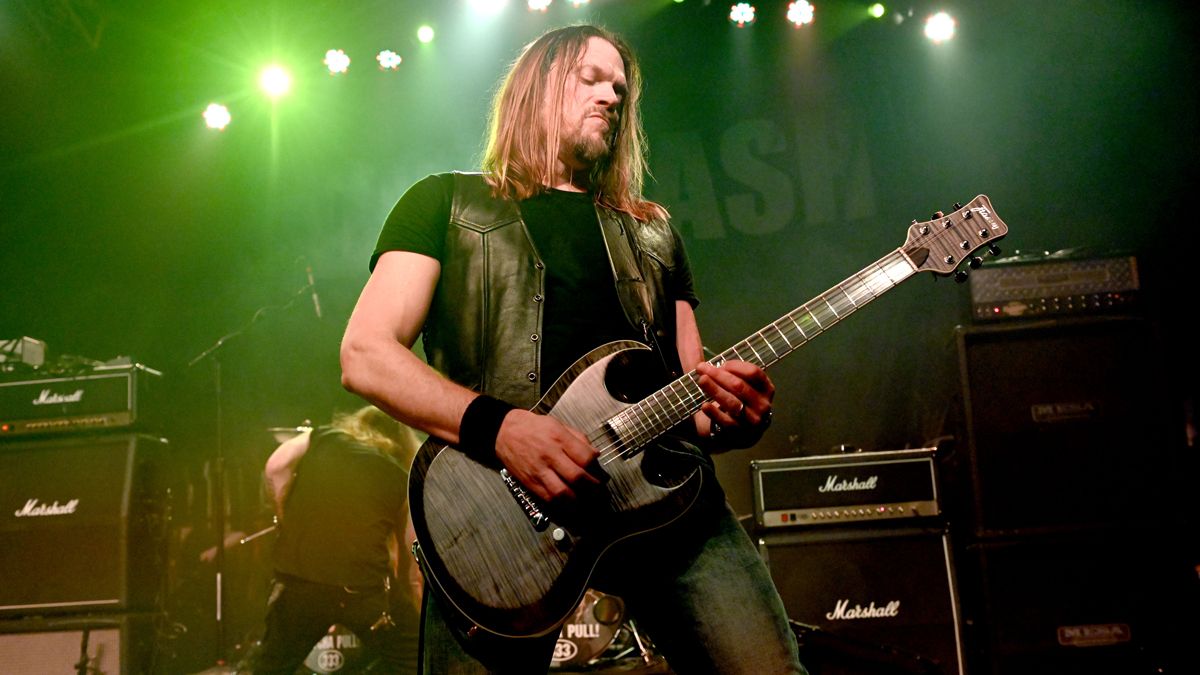
Losing the likes of Rex Brown and Vinny Appice would be the kiss of death for most bands, but not for Kill Devil Hill. Instead, the North Carolina-born hard-rock supergroup has saddled up, coming out stronger than ever, as they release their first record in a decade, Seas of Oblivion.
Sure, without its star-studded rhythm section, the sound and aesthetic of Kill Devil Hill look a whole lot different, but Matt Snell (bass) and Johnny Kelly (drums) have pitched in so that holdovers Dewey Bragg (vocals) and Mark Zavon (guitars) can do what they do best: unleash the beast from within.
Speaking to Guitar World in support of Seas of Oblivion, Zavon says: “Dewey [Bragg] and I had been working on a third record since [2013's] Revolution Rise, so we had stockpiled material. Things got put on hold for a while when Rex [Brown] decided to do a solo record, so we waited until he decided he wouldn’t continue.”
“Rex leaving lit a fire under us, and we recruited Matt Snell [Five Finger Death Punch] and Chris Collier [Korn] as our producer. We tracked the drums at Clear Lake in North Hollywood and did the rest in our home studios. And the lyrics inspired the cover art by Sam Shearon. There are a lot of pirate references and metaphors, inspired by the fact that the name Kill Devil Hill came from tales of pirates and rum.”
After 10 years in studio mothballs and down two members since Revolution Rise graced speaker cones, fans might have forgotten the bombast that Kill Devil Hill could deliver. But Zavon has got you covered on all fronts.
“The first track on the record, Blood in the Water, is a good example of my aggressive side, while Pharmaceutical Sunshine shows my attention to detail,” he says of his playing on the record.
“Undertow has an interesting turn in the chord progression. And Before the Devil Knows has a great doubled solo. And then, the outro solo on Darkest Days was one that I improvised and left alone because the vibe was right in the studio, and it was easy; I wish they could all be like that.”
Get The Pick Newsletter
All the latest guitar news, interviews, lessons, reviews, deals and more, direct to your inbox!
But what’s most evident while listening to Seas of Oblivion is the technical focus and how that interests with the whimsy of Zavon’s tone-perfect playing. And that, of course, is by design: “I’m always looking for better tone, whether it’s dialing knobs on a new amp or surfing through Kemper patches.”
He adds, “I recently picked up a [Two Notes Torpedo] Captor X cabinet simulator, an interesting way to create new tones. It’s a great payoff when you dial in a great sound, but experimenting and trying new stuff makes that happen. In the immortal words of Ian Gillan, ‘It’s not the kill, it’s the thrill of the chase.’”
Describe your songwriting process.
“I’ll devise a riff and record it with my phone, so I don’t forget it. I’ve lost a lot of good ideas by convincing myself that I’d remember them tomorrow, so I try not to let that happen these days. Once I have an arrangement, I’ll assemble a demo with canned drums and a makeshift bassline.
“Then, I’ll try different layers and tones and feel out what the song needs. I then develop a melody and vocals, followed by the lead guitar parts. I like to have vocals before lead guitar parts because the vocal melody can sometimes guide my playing.
How do you approach riffs and solos?
“I’ll discover something when I’m jamming that catches my ear, making me want to refine it, or I’ll design something from a theoretical perspective to accent a particular scale, mode, or interval. But there’s an improvisational aspect to the supporting parts around the riff.
“With solos, I’ll improvise until something starts to feel right, then refine it until I can repeat it. I like to double my solos, so I have to be able to keep them tight. But sometimes, I’ll plan out a melodic solo or let a single-track improv solo fly independently; it depends on what feels best.”
Do you consider yourself a lyrical player or more freeform?
“Yes, I would say that I lean more toward the lyrical side of things. I’ve always loved guitar solos that I could sing along with and melodies and riffs that were so catchy that they’d get stuck in my head for days.
“Don’t get me wrong, I love me some shred guitar, but even Eruption has timeless lyrical melodic elements. I think it’s a balance of the two that keeps things interesting, meaning a measured sense of lyrical melody combined with an unbridled improvisational recklessness.”
What guitars played the most significant role while recording Seas of Oblivion?
“I have a black Gibson SG-1 with an old Seymour Duncan JB in it that I’ve used on all our records. It has a fantastic tone that cuts through, and the intonation is excellent. In addition to the Gibson, Framus built me a couple of gorgeous XGs with EMG 89XR pickups. I used those for doubling and layering and an old Fernandes Strat for all the single-coil stuff.
“I have a Taylor 410 that I used for the acoustic parts, along with a Guild 12-string that I borrowed from a friend. Picking a guitar to track with depends entirely on the texture I’m going for. I like the second and fourth position on a Strat for clean tones, but I usually use a humbucker for dirty stuff. It’s slightly like a painter picking a paintbrush; the right tool makes all the difference.”
How about pedals and amps?
“My main amps on this record were my Bogner Uberschall and an Engl Artist head. I used them in combination for the bulk of the rhythm tracks and some of the lead tracks. I used a Kemper for most of the layer tracks and the remaining lead stuff.
“I have an old ‘70s [Fender] Bassman that I ran through a Cordovox Leslie cabinet for the effect on The Bitter End, and I used an [EHX] POG for some low-octave layers. I also used my Dunlop wah, DigiTech Whammy, and an MXR Phase 90.”
Do you subscribe to the idea that you’ll forever be chasing sounds? If so, what are you chasing?
“I guess it’s something that you don’t know until you hear it. Maybe it’s a pedal combination or a new amp with sweeter midrange or smoother gain. Sometimes, it’s digging into an old piece of gear, like with my Kemper, when I discovered the controls for pick attack and clarity, which have a different effect than traditional amp controls.
“Whenever I think I have my tone dialed in, I find something that makes me want to improve. I’m unsure if it’s a blessing or a curse, but I doubt I’ll ever quit chasing the dragon.”
- Seas of Oblivion is out now.
Andrew Daly is an iced-coffee-addicted, oddball Telecaster-playing, alfredo pasta-loving journalist from Long Island, NY, who, in addition to being a contributing writer for Guitar World, scribes for Bass Player, Guitar Player, Guitarist, and MusicRadar. Andrew has interviewed favorites like Ace Frehley, Johnny Marr, Vito Bratta, Bruce Kulick, Joe Perry, Brad Whitford, Tom Morello, Rich Robinson, and Paul Stanley, while his all-time favorite (rhythm player), Keith Richards, continues to elude him.

“If any song can unite all generations of rock guitar fans, this is it”: March 2025 Guitar World Editors' Picks
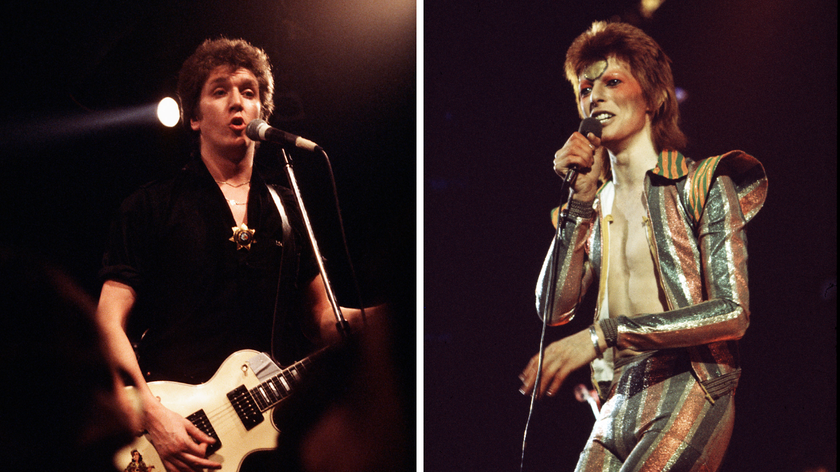
“I nicked some cymbals, the bass player’s amp head and some microphones. I got Bowie’s microphone with his lipstick on it!” On July 3, 1973, David Bowie retired Ziggy Stardust – that same day, Steve Jones stole his equipment



